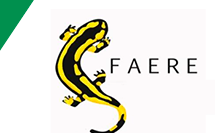A methodology of accounting is developed that finds that the Hamiltonian is a measure of income in an autonomous problem but that in a non-autonomous problem income should include capital gains. Four canonical models in exhaustible-resource economics are studied. The Hotelling model of a competitive resource is a non-autonomous problem. Capital gains should be included in the gains of resource producers. The corresponding planner's problem may be autonomous, however. The change in the problem changes the accounting for income in the new numeraire, utility. Lewis Gray's problem for a competitive firm operating with u-shaped average cost is interpreted as both an autonomous and a non-autonomous problem. Finally, the problem with costs dependent on depletion or remaining reserves (the stock effect) is discussed. Accounting must apply to non-optimal resource allocation outcomes, and it is likely that there are sources of non-autonomy when a problem is not optimal.




